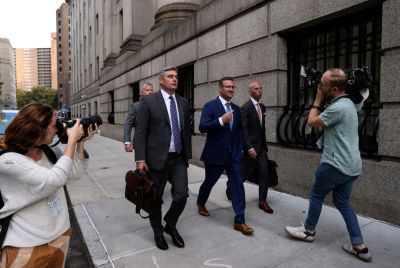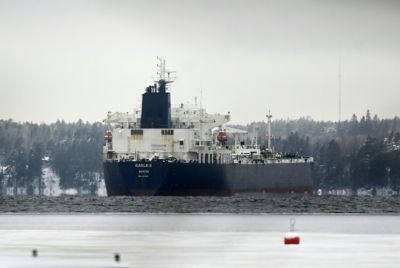Hondurans to elect new president after June coup
TEGUCIGALPA - Hondurans vote for a new president Sunday in the latest chapter of a months-long political standoff triggered by a coup that has divided the United States from Latin American powers Brazil and Argentina.
Neither President Manuel Zelaya nor arch-rival Roberto Micheletti, installed as interim president by Congress after Zelaya's overthrow in June, is in the race.
That leaves the door open for someone else to take Honduras beyond the gridlock that has crippled the Central American nation for five months and cut off international aid.
But doubts remain over whether the world will recognize the vote because it is being run by the coup leaders and could end any hope of Zelaya returning to power.
Zelaya, camped out in the Brazilian Embassy since September when he snuck back to Honduras from exile, says the vote is illegitimate and is telling supporters to stay home.
Soldiers grabbed the leftist from his home before dawn on June 28 and threw him out of the country, starting Central America's biggest political crisis since the end of the Cold War.
The U.S. State Department says Sunday's election is a democratic way forward for the Honduran people after talks to find a negotiated solution collapsed over the question of reinstating Zelaya.
The U.S. position splits President Barack Obama from some Latin American leaders who say an election organized by Micheletti's de facto government is invalid and would amount to a victory for the coup leaders.
Obama wants to improve ties with the region -- still haunted by memories of U.S.-backed military governments in the late 20th century -- but risks isolating himself from Brazil and Argentina, which reject the election.
The two leading presidential candidates hail from Honduras' ruling elite and have tried to avoid talking about the crisis, trying to convince Hondurans that the elections will let the country move on.
We have to leave the differences and conflicts that divide us behind, front-runner Porfirio Pepe Lobo from the conservative opposition National Party said Saturday.
Lobo says that if he wins, he will plead with foreign leaders to restore funding and seek a new agreement with the International Monetary Fund, after foreign donors slashed aid to impoverished Honduras after the coup.
In an October poll by CID-Gallup, Lobo was 16 points ahead of his closest rival, Elvin Santos from Zelaya's and Micheletti's Liberal Party.
BOYCOTT CAMPAIGN
Security forces have cracked down repeatedly on anti-coup protesters, causing several deaths, and some observers say a fair vote is impossible after Micheletti temporarily shut down pro-Zelaya news channels.
The Organization of American States and the United Nations refused to send observer missions to the election, set before Zelaya's overthrow.
A series of small home-made explosive devices went off at voting centers and news stations in recent days, but there have been no major injuries. Even so, some Hondurans say they are afraid to vote.
It will be dangerous to go out, I am going to stay in my house, said Juan Villanueva, 50, an orange vendor who lives in a wood shack in one of Tegucigalpa's sprawling slums.
Soldiers shot and seriously wounded a man in a car outside military headquarters in the capital Friday night. Police said the man failed to stop at a checkpoint.
Major television channels and radio stations, controlled by a clutch of wealthy businessmen who back the coup, are rallying the public with upbeat commercials and commentaries about how the vote can save the country.
The more than 5,000 polling stations, including six in the United States for the some 1 million Hondurans immigrants, open at 7 a.m. (8 a.m. EST).
Analysts say a nod from the United States could lead to a trickle of recognition from other countries. Costa Rica, which welcomed exiled Zelaya the day of the coup, and Peru said they were ready to accept the results. Conservative Panama and Colombia are likely to follow suit.
Zelaya angered business leaders and members of his own party by moving closer to Venezuela's socialist president, Hugo Chavez.
The army removed him at gunpoint after the Supreme Court and Congress accused him of trying to change the constitution to keep himself in power, a charge he denies.
Nicaragua, run by Chavez's close ally, President Daniel Ortega, who strongly backs Zelaya, temporarily closed its border with Honduras Saturday.
(Additional reporting by Gustavo Palencia, Tomas Sarmiento and Anahi Rama in Tegucigalpa; Editing by Xavier Briand)
© Copyright Thomson Reuters 2024. All rights reserved.





















